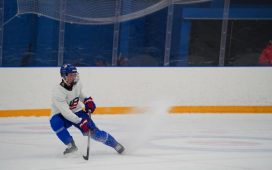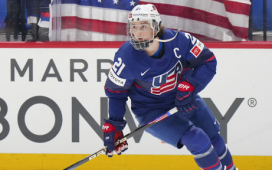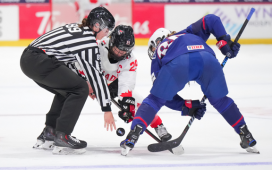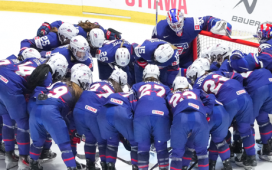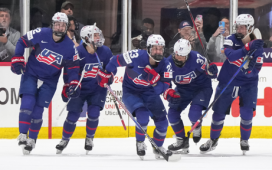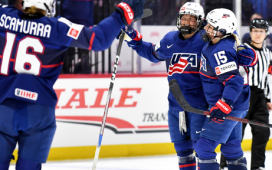Good on the NHL for recognizing that “what happens in the dressing room” may no longer stay in the dressing room, but what’s going to happen next?

Good on the NHL for recognizing that “what happens in the dressing room” may no longer stay in the dressing room. And for coming to the conclusion that “what happens in the dressing room” is not an excuse or justification for behavior that goes beyond the norms of any other profession. It’s still a management-employee relationship, regardless of the industry. The NHL’s Code of Conduct, or as commissioner Gary Bettman put it, “a mandatory annual program on counseling, consciousness-raising, education and training on diversity and inclusion,” is a really, really good idea.
And it also has the blessing of the NHL Coaches Association, a body which has no collective bargaining power on behalf of the league’s coaches and assistants, but is more focussed on providing coaches with guidance and assistance with pension benefits, taxes, estate planning and networking opportunities. But it’s the closest thing the coaches have to a union, so it’s refreshing to see it was embraced by those who will be most affected. “We want to be part of the solution,” said Michael Hirshfeld, executive director of the NHLCA. “Any positive change is good. We want to work with the NHL on this.”
But when Bettman unveiled the plan at the NHL board of governors meeting this week, all we got were the bullet points. Literally. Bettman outlined a four-point plan that was very short on specifics. And there’s nothing wrong with that. The NHL was caught in a situation where it had to respond to some very serious situations, but obviously it didn’t have the time to put together a structured program. It will spend the next couple of months doing exactly that. This is a league that, as Bettman said, “doesn’t like surprises” and it was caught off guard when the wave of accusations started to emerge. It’s going to take some time for the details to be worked out, and the league will likely face some challenges along the way.
One of the biggest ones is what constitutes abuse? If a coach is known as a yeller and screamer and that’s how he motivates his players and it works and the team wins a Stanley Cup, is that verbal abuse? We’re talking about verbal abuse in a highly charged emotional environment that, at the NHL level, is all about winning. There are those in hockey who would suggest that if you can’t take or don’t like being called out in a blunt manner, then perhaps they should work in a field that isn’t so critical. The NHL is going to have to watch where it draws the line here is where it places the threshold for abuse. And what to do about things that happened years ago where there is no video or witnesses?
And who is going to define what is verbal abuse? If it’s not codified and precise words are not included in the code, then it becomes open to interpretation and that probably doesn’t do a lot of good for anyone. As one person close to the industry said, “If you don’t have a definition in there saying, ‘Verbal abuse includes the following 10 words,’ or whatever, it’s all subjective. You want to put the coaches through training? Knock yourself out. You want to put in a whistleblower hotline? Knock yourself out. But how are you going to police what a coach does or says, then tell teams if they don’t report it, they’re going to be in trouble?’”
The hotline is another potential trouble spot, simply because even though it would guarantee anonymity, it would not be difficult for a coach to connect the dots back to an individual player who might be involved. Players will still be hesitant to do anything that would jeopardize his career. As much as players in the NHL are empowered, they still know there’s a chain of command that has the power to, as GM Joe McGrath threatened Reggie Dunlop in Slap Shot, bury them so deep even The Hockey News won’t be able to find them. A more realistic scenario happened recently when an NHL player had a grievance against his team and thought he had an excellent case. But he decided to settle with the team for considerably less money than he thought he deserved simply because he didn’t want to be blackballed by his team.
This is clearly a very good start. It’s actually kind of hard to believe the league had not Code of Conduct before now, but nothing prompts action like crises. When the league does roll out the plan in its entirety, it will have been done on the basis of doing its homework. This is too important a plan with far-reaching consequences for too many people to do it any other way.
